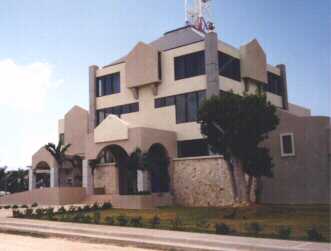
(1) They facilitate transactions between two parties, such as companies wishing to
exchange currencies (consumers), and
(2) They speculate by buying and selling currencies. The banks take positions in certain
currencies because they believe they will be worth more (if “buying long”) or less (if
“selling short”) in the future. It has been estimated that international banks generate up to
70% of their revenues from currency speculation. Other speculators include many of the
worlds’ most successful traders, such as George Soros.
The Forex market is so large and is composed of so many participants, that no one player,
even the government central banks, can control the market. In comparison to the daily
trading volume averages of the $300 billion in the U.S. Treasury Bond market and the
approximately $100 billion exchanged in the U.S. stock markets, the FOREX is huge, and
has grown in excess of $1.5 trillion daily. It is easy to see why trading Forex online has
become such an attractive prospect for those ‘would be’ professional investors.
If we are being honest the word ‘market’ is not entirely true for Foreign Exchange since
there is no one central location for trading activity. Whilst most of the trade volume is
performed through around 300 large international banks, there are millions of trades
being executed all around the globe both online and over the telephone.
Search in Site
Wednesday, January 14, 2009
Role Of Commerical Bank In Forex Market
Tuesday, January 13, 2009
Defination Of Forex And History
Forex is derived from the words Foreign Exchange and is also occasionally referred to as ‘Spot FX’ or simply ‘FX’.
As a simple definition, Forex trading is the exchange of currencies at varying exchange
rates, which result in profit (or loss) for those who participate as traders.
Forex is derived from the words Foreign Exchange and is also occasionally referred to as ‘Spot FX’ or simply ‘FX’. As a simple definition, Forex trading is the exchange of
currencies at varying exchange rates, which result in profit (or loss) for those who
participate as traders.
The History
Established in 1971 when floating exchange rates began to materialize, the Forex market
has enjoyed huge growth, particularly since the Internet advanced to a level that enables
trade to be made easily 24 hours a day. More recently, the minimum deposit level for an
account has fallen below the $100 mark meaning currency trading is now possible by
people from all walks of life.
Historically, the FOREX interbank market was not available for small speculators. With a
previous minimum transaction size and often-stringent financial requirements, the small
trader was excluded from participation in this market. But today market maker brokers
are allowed to break down the large interbank units and offer small traders the
opportunity to buy or sell any number of these smaller units (lots).
